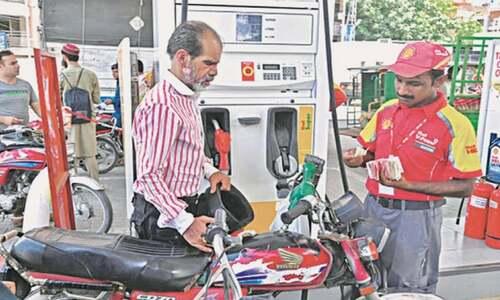PAKISTAN has long faced extremism, insurgency and terrorism. After 9/11, a number of legal, administrative and policy interventions were made, but despite the expanded counterterrorism (CT) apparatus, the goals have yet to be met. In practice, terrorism has interprovincial, interstate and international linkages, and so cannot be prevented or countered by provinces alone.
During the last two decades, provinces established counterterrorism departments (CTDs), and in 2009, the National Counter-Terrorism Authority (Nacta) was established at the federal level.
Traditionally, the centre develops security policy, while both federal and provincial departments handle the operational side. The National Internal Security Policy I, NISP II, NAP I, and NAP II are federal policies. Nacta, Pemra, FIA, PTA, ANF, ASF, FBR, State Bank, and IB are federal institutions. The Anti-Terrorism Act, the Anti-Money Laundering Act, the Prevention of Electronic Crimes Act of 2016, the Nacta Act, and the Foreign Exchange Regulation Act of 1947 are federal enactments.
After every major incident of terrorism, the media questions the effectiveness of Nacta, which negatively impacts its credibility. Nacta is a think tank and a coordination-, information- and intelligence-sharing apparatus between the centre and provinces. It wasn’t envisioned as an investigative or operational CT body.
We need a centralised response to militancy.
To make it so, the Nacta Act must be amended and a National Counterterrorism Department created and empowered to investigate the offences specified in the ATA across provinces. The NCTD should be headed by an IGP who has preferably served in conflict zones, is well versed in CT dynamics, and will report to the national coordinator, Nacta.
It should be empowered to conduct investigations and prosecutions of scheduled offences and to take over investigations of cases upon request from provincial CTDs. The federal government may also order NCTD to take over the investigation of scheduled offences.
Post-18th Amendment, however, creating an NCTD may be resisted. Provinces could react negatively and seek a favourable judicial interpretation. The presence of different political governments at provincial and federal levels may impact center-province ties related to CT. Human rights organisations may also oppose the NCTD’s expanded jurisdiction.
Those opposing an NCTD on the pretext of provincial autonomy should consider the existing reliance on federal bodies, which makes it logical to have a federal CT body. A synchronised, centralised response would be more effective. However, that’s not possible without constitutional, legal and procedural changes.
Keeping in view the surge in militancy, as well as political polarisation and financial constraints, setting up an NCTD looks like a lofty ideal. Still, it is worth looking at how it can be done. Option one could be to retain the provincial CTDs and establish the NCTD with redefined functions.
Option two could be a merger of all CTDs, with the best available talent retained and the rest reassigned to the provincial police. Making the NCTD a reality requires magnanimity on the provinces’ part and financial generosity from the centre. Another option may be an NCTD with only investigative, coordination and intelligence-sharing functions.
Setting up an NCTD will enable the consolidation of the civilian CT apparatus under a single umbrella and avoid institutional overlapping. Bringing CT into the federal domain will ensure clarity of purpose and unity of command. A specialised NCTD will alleviate the provincial police’s burden, allowing them to focus on crime prevention, detection and public service. An NCTD could also facilitate international cooperation in CT and collaboration with CT agencies of friendly countries.
Our civilian CT model is primarily numerical and dependent on borrowed intelligence. The challenges warrant instant intelligence sharing, effective planning, coordination, technology-led solutions, policing cyberspace and standardisation of CTDs.
Before the Motorway Police, road safety and enforcement were neglected areas. When it first started, it had jurisdiction over 365 kilometres; that has been extended to 4,696 km, and further deployment over 4,230 km is in process. Despite an increase in vehicular traffic since the introduction of the Motorway Police, road accidents have registered a downward trend. While we talk extensively about provincial autonomy and yet expect enforcement of road safety from the federal police, why should CT not be a federal domain?
To ensure the provision of funds, the matter may be discussed in the CCI and parliament. As it also necessitates major shared financial outlay, it could be considered during the finalisation of the next NFC award.
The writer is author of Pakistan: In Between Extremism and Peace.
Twitter: @alibabakhel
Published in Dawn, February 20th, 2023













































Dear visitor, the comments section is undergoing an overhaul and will return soon.